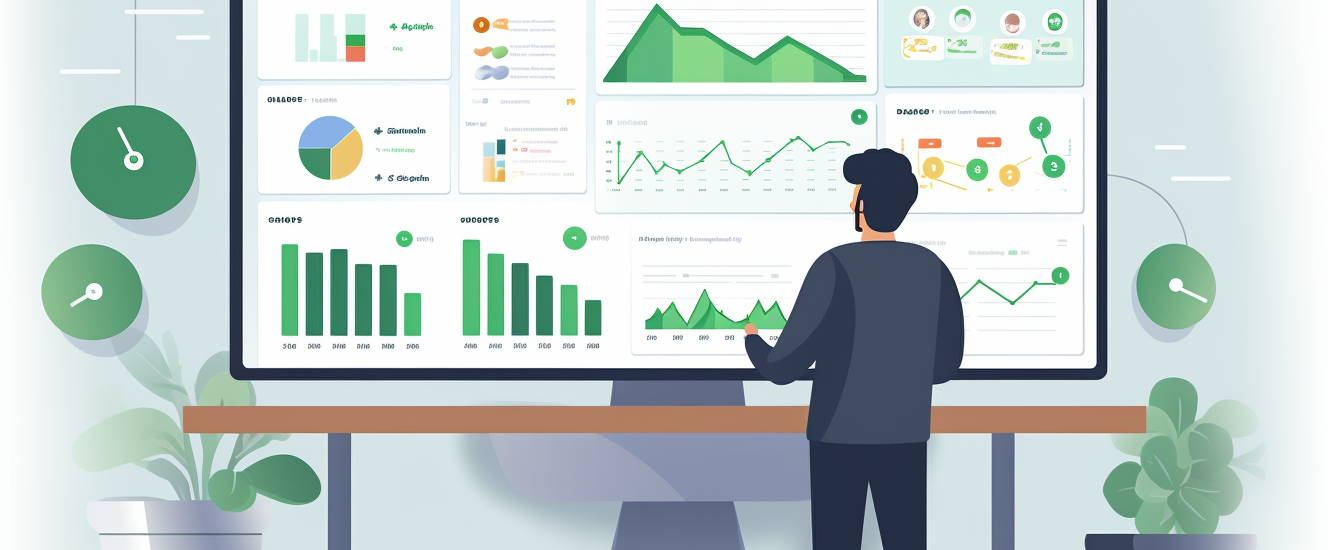Shopify has become one of the most popular e-commerce platforms, powering over 1 million online stores. Its flexibility, ease of use, and robust feature set make it an ideal choice for small businesses to enterprise brands looking to sell online. One of the biggest advantages of using Shopify is the ability to customize and extend your store’s functionality through custom app development. In this article, we’ll explore how custom apps can elevate the online retail experience and the benefits merchants can gain from building tailored solutions on top of Shopify.
Introduction to Shopify and Custom App Development
Shopify provides a reliable hosted e-commerce platform with everything brands need to create a professional online store and sell across channels. The software handles hosting, security, speed optimization, payments, shipping, and more so brands can focus on their products, content, and customers.
While Shopify already comes packed with features out of the box, one of its major strengths is the ability to augment functionality through its App Store. The Shopify App Store boasts over 6,000 apps that allow merchants to add advanced capabilities to their stores. Apps are available for marketing, customer engagement, automation, reporting, and almost anything else an online retailer needs.
However, sometimes even the vast selection of apps in the Shopify App Store doesn’t provide the exact solution a brand is looking for. This is where investing in custom Shopify app development can pay off. Custom apps are privately developed tools that perfectly fit a merchant’s unique needs and integrate seamlessly with their Shopify store.
How Custom Apps Fit into Shopify
Shopify provides a robust API and developer platform that makes building custom apps straightforward for agencies and developers. Custom apps connect to Shopify just like any app from the Shopify App Store, with a few extra steps required for private listing and installation.
Once installed and authorized, custom apps have access to the same Shopify data and can integrate with the Shopify admin and storefront. That means custom apps can do things like pull in real-time order information, update product details, display customized interfaces, and more.
Custom apps can be hosted and run on developers’ own servers or hosted by Shopify and served through Shopify’s worldwide CDN. Apps can also be published privately or submitted to Shopify for approval into the public Shopify App Store.
Types of Custom Apps
Some of the most common types of custom apps created for Shopify include:
Admin Customizations: These apps enhance or streamline the Shopify admin experience for merchants. They may add new admin interfaces, automate workflows, or integrate other data sources into the backend.
Storefront Customizations: Storefront customizations use Shopify’s Liquid templating and APIs to change what customers see in the front end. They can build advanced features like custom mega-menus, 360-product views, dynamic layouts, and more.
Custom Data Apps: By syncing custom data points through the API, these apps can display unique information like inventory status, custom product options, or advanced reporting.
Integrations: Integration apps bridge the gap between Shopify and other platforms like ERPs, accounting software, POS systems, and more.
Internal Tools: Shopify apps can also be built for internal business uses like warehouse workflows, order management, fulfillment, etc.
Benefits of Custom App Development on Shopify
Some key benefits for merchants investing in custom Shopify apps include:
Customization – Pre-made apps provide generic solutions, while custom apps can be tailored to exact business needs.
Competitive Edge – Unique and innovative apps can differentiate a brand’s shopping experience.
Efficiency – Automation and process streamlining through custom apps save time and money.
Control – Merchants don’t have to compromise their workflow to fit ill-suited solutions.
Scalability – As business needs change, custom apps can adapt and scale capabilities up or down.
Cost-Effectiveness – Custom apps can provide advanced functionality for less compared to commercial alternatives.
| Benefit | Custom App Development | Pre-Built Apps |
|---|---|---|
| Customization | Fully customizable to unique needs | Generic off-the-shelf solution |
| Competitive Edge | Innovative differentiating features | Same common features as competitors |
| Efficiency | Streamlines workflows and automates processes | May not integrate well, requiring manual work |
| Control | Complete control over functionality and integrations | Must conform business processes to app workflow |
| Scalability | Can scale up or down as needs change | May be limited if app is too rigid |
| Cost-Effectiveness | Advanced capabilities for lower cost | Can be expensive for large enterprise needs |
Getting Started with Custom App Development
Brands interested in pursuing custom Shopify app development should start by:
Auditing business needs – Map out exactly what should be solved or achieved with new app capabilities.
Researching developer partners – Find an agency or freelancer with expertise in Shopify apps and API.
Scoping the build – Outline the timeline, costs, requirements, integrations, and other technical specifications.
Allocating resources – Ensure sufficient budget and internal staff resources to support the project.
Developing iteratively – Use an agile approach to get an MVP launched quickly and improve incrementally.
Designing Your Shopify App
When designing a custom Shopify app, some key elements to consider are:
User experience – How admins and customers will interact with new interfaces and flows.
Security – Properly handling authentication, permissions, data access, etc.
Speed – Optimizing performance so the app is fast and reliable.
Maintainability – Building in a way that’s scalable and easy to manage long-term.
Admin settings – Required for configuration options, enabling/disabling features, etc.
Naming conventions – Clear naming for routes, actions, variables, etc. improves organization.
Well-designed custom apps feel like native extensions of Shopify, blending seamlessly into merchant workflows. Keeping the user perspective in mind is key.
Best Practices for App Building
Some best practices to follow when building Shopify apps include:
Use Shopify standards – Follow Shopify’s conventions for structure, naming, etc. for easier maintenance.
Plan for extensibility – Architect app to make additions and enhancements simple in the future.
Comment thoroughly – Add ample comments explaining code logic and complex sections.
Validate data – Rigorously validate and sanitize any user input or API data.
Implement caching – Use caching strategies to optimize performance.
Monitor app behavior – Track metrics like usage, performance, errors to improve app.
Document fully – Maintain detailed technical documentation on configurations, dependencies, etc.
Following coding best practices and established Shopify app development patterns results in more robust and resilient apps merchants can rely on.
Keeping Your App Secure
Security is crucial when dealing with sensitive customer data and financial transactions. When developing Shopify apps:
Authenticate properly – Use OAuth properly and avoid storing API credentials in app code.
Authorize wisely – Only request minimum required permissions for what the app needs to do.
Validate everything – Assume all input and data may be malformed or malicious.
Escape output – Properly encode output to prevent XSS vulnerabilities.
Encrypt sensitive data – Any private data should be encrypted at rest and in transit.
Sanitize dependencies – Keep all third party libraries up-to-date and free of vulnerabilities.
Limit access – Only allow authorized IP addresses to access admin portions of app.
Security should be baked into every stage of design and development to avoid introducing risky vulnerabilities.
Building for High Performance
Custom apps shouldn’t degrade the speed and reliability customers expect from Shopify stores. Some performance best practices include:
Optimize queries – Only fetch data from API that’s absolutely required.
Implement caching – Use Redis, memcached, or CDNs to cache data.
Streamline code – Remove unnecessary loops, database queries, etc. that waste resources.
Compress payloads – Reduce network traffic by gzipping API responses.
Use a CDN – Distribute static assets globally through fast CDN networks.
Limit external calls – Avoid excessive third party API or database queries that may stall processes.
Manage queues – For asynchronous jobs, implement queuing and workers to smooth load.
High-performance apps lead to better merchant and shopper experiences and lower infrastructure costs.
Promoting Your App on the Shopify App Store
If submitting your custom app to the Shopify App Store, some tips for getting featured include:
Solve a clear need – Ensure your app provides tangible value to merchants.
Polish UI/UX – Great design and usability makes apps stand out.
Offer free trial – Allow merchants to test out your app at no cost at first.
Highlight key differentiators – Show why your app is better than others in your category.
Gather testimonials and reviews – Prove your usefulness through happy customer quotes.
Optimize listing content – Include powerful descriptions, images/video, and keywords.
Promote your listing – Drive traffic to your App Store listing through marketing.
With over 6,000 apps on the Shopify App Store, competition is fierce. Creating something truly useful and unique can give your app an advantage.
Analyzing Merchant Feedback and Concerns
Pay close attention to merchant feedback during and after development to keep improving your app. Monitor:
Feature requests – Requests can indicate useful capabilities to build next.
Bug reports – Fixing issues quickly improves app stability.
Performance concerns – If the app is slow or failing, merchants will speak up.
Unclear workflows – Confusion indicates UX pain points to refine.
Support questions – Common questions may signify the need for in-app education.
Reviews/ratings – Feedback from App Store reviews can highlight opportunities.
Continuously collecting and analyzing merchant input ensures your app evolves to meet real needs on an ongoing basis.
Essential Resources for Shopify App Development
Key resources for exploring custom Shopify app development include:
Shopify Partners – Become a Shopify Partner for support, certification, and benefits.
Shopify Developer Docs – In-depth technical documentation for building on Shopify.
Shopify App Developer Blog – Blog focused specifically on app dev news and guidance.
Shopify App Development Courses – Video courses to learn app development skills.
Shopify App Developer Slack – Chat with other Shopify developers.
Shopify AppScape Conference – Annual gathering of Shopify app developers.
Whether just getting started or looking to expand development knowledge, useful resources exist to point developers in the right direction.
In Conclusion
The flexibility provided by Shopify’s app ecosystem lets merchants build amazing customized shopping experiences through custom app development. Shopify apps empower brands to solve unique business challenges, differentiate their brand, streamline complex workflows, and stay competitive through innovation. While building a custom Shopify app requires technical chops and design skills, an imaginative idea brought to life through custom software unlocks game-changing possibilities for taking retail businesses to the next level.
Take your Shopify store to the next level with custom app development from the experts at Digitalsuits. For over a decade, Digitalsuits has helped businesses maximize their Shopify investment by building tailored solutions to address specific needs and goals. Their proficient Shopify web development team is prepared to deliver customized solutions for even the most advanced Shopify requirements. Digitalsuits prioritizes collaboration to truly understand each client’s challenges and turn ambitious ideas into reality through bespoke software. In combination with their extensive tech partner network, they ensure the effective fulfillment of your business needs. If you’re looking to boost conversions, streamline operations, or differentiate your brand with unique Shopify capabilities, trust the seasoned Shopify specialists at Digitalsuits to bring your vision to life.
Invest in a winning Shopify strategy with Digitalsuits as your app development partner. Digitalsuits eliminates the frustrations of one-size-fits-all app store solutions by designing and developing apps aligned with your brand’s objectives. Their Shopify experts thrive on tackling complex projects and view difficult problems as exciting opportunities to provide meaningful utility. By engaging Digitalsuits for thoughtful custom shopify development services, you can connect the dots between online and offline processes, promote brand consistency across channels, and delight customers with personalized shopping experiences. Don’t settle for average results from generic apps – contact Digitalsuits today to explore custom Shopify possibilities tailored for your success.
FAQs about Custom App Development on Shopify
Does Shopify allow custom apps?
Yes, Shopify provides an API and developer platform for building custom apps to extend store functionality. Apps connect in a similar way to the Shopify App Store offerings.
How much does it cost to build a custom Shopify app?
Costs vary based on app complexity, but simple to mid-range apps typically cost $10,000 – $60,000+. Enterprise-level apps with extensive capabilities can cost over $100k.
Can you sell custom Shopify apps?
Yes, developers can choose to sell self-built apps publicly through the Shopify App Store or privately directly to merchants. Building apps for clients is a major revenue stream for many Shopify developers.
What coding language is best for Shopify apps?
Shopify apps can be built using any language, but Ruby on Rails and Node.js tend to be the most common among Shopify developers.
Do I need to be a Shopify Partner to build apps?
No, you can build apps independently without the Partner program. However, joining offers useful resources and perks like 24/7 technical support.
Can custom apps access all Shopify data?
Apps must be granted permission scopes to access particular data through the API. Apps should only request the minimum access needed for their features.
How do I test and troubleshoot my custom app?
Use Shopify’s test store environments and Partners dashboard to test installations, inspect API calls, monitor performance, view logs and errors, and debug issues.




